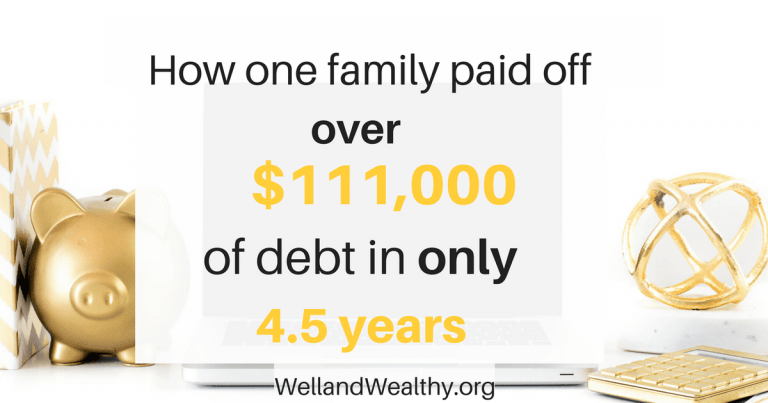Can you really retire early on a low income?
Today I’m going to be examining the slightly controversial question of whether you can retire early on a low income.
Now obviously the technical answer is yes, as long as you have an income and save enough of that income you will retire early. However, can low-income earners actually live off what would be remaining after saving a high enough proportion of their income to retire?
That’s what I’m going to find out!
Just so you know I’m actually writing this post in real-time, and by that I mean I don’t yet know the answer. Of course I will by the end of this post (fingers crossed) but basically I have no current bias because at this point I genuinely do not know, or think I know the answer.
But before we get down to the nitty-gritty, let’s have a quick recap:
WHAT IS EARLY RETIREMENT?
Early retirement is the end of mandatory work because your passive income (think stocks and shares investments) covers your living expenses.
It’s very easy to work out how much you actually need to retire using the 4% rule, if you want to learn more about the rule and the basics of early retirement then head over to my post where I introduce the concept. (I know it sounds mathy but it’s actually super fun, well I found it fun…)

IN ORDER TO WORK OUT WHETHER YOU CAN RETIRE EARLY ON A LOW INCOME, WE FIRST MUST DETERMINE WHAT CONSTITUTES A LOW INCOME.
Now I’m actually based in the UK but because the majority of you lovely readers are based in the USA I will be using US dollars and the cost of living there. Realistically bar a few things, once you’ve gone through exchange rate, cost of living is pretty similar between the two countries.
So according the Untied States Census Bureau in their 2015 Income and Poverty report households in the second quintile (the level above the poverty line and below the average income) had an income between $22,801 and $43,511. Therefore the average low income is $33,156 per household (the average American household consists of around 2.5 people, so for this post we will assume two adults and a child).
So now we have a fake household of two adults and one child, with an annual income of $33,156 who wish to retire early. Let’s call them the Jones.
Now we need to figure out how much the Jones would need to save to retire in 10 years assuming no current capital or debts.
I worked out that for the Jones to retire in 10.1 years they would need a savings rate of 64% (assuming an average 7% return on their investment which is realistic).
That means annually they need to save $21,220 and live off $11,936. Woah.
Can it be done? Right now I will be honest with you it sounds pretty impossible. After all my own annual spending is around £9,600 and I’m only one, pretty frugal person!!!
Still, let’s keep going!

According to data from the Bureau of Labor Statstics the average annual spending of the average American household is $85,371, which sounds crazy high to me!
Obviously, our Jones family certainly aren’t spending that much at all. And because they are committed to financial independence and retiring early, frugality is the name of the game, so let’s see how low we can get their average spending!
To see just how frugal one can get in the USA I’m going to do some research over at Early Retirement Extreme. Jacob, who runs the blog, is considered one of, if not the most frugal early retirees around, in fact one of his most popular blog posts is how he lives (or lived, it’s from 2013) on only $7,000 per year.
In Jacob’s FAQs he details his 2016 budget for living in Chicago. Handy for us right. The house is paid for and he is married so the costs below are for two adults. If you can’t believe how he lives on that little amount then read through his FAQs because he does explain a fair amount!
Annual Expenses:
Property taxes – $3,900
Insurance (all) – $2,000
Food – $1,800
Utilities – $2,400
Total = $10,100
(They even run a car in all of that!!! I can only assume the fuel comes out of the utilities section. Dead impressed!!!)
Now obviously since the house is paid for we need to alter the budget slightly and I’m guessing the Jones’ child would like to eat as well so we are going to need a little extra food money.
Let’s start with somewhere to live. We will assume, as they have no capital that the Jones will be renting. In the USA if you rent then you don’t need to pay for property taxes so we can take that $3,900 per year and use that for rent instead. So we have $325 available per month.
Having had a quick Google I couldn’t find anywhere actually in Chicago (where Jacob’s budget is based) that I would want to raise a kid in for that price, but there are plenty of places available in Illinois at $325 per month or less with two bedrooms that looked nice enough to live in. Plus as the wage they’re receiving isn’t very high I think you could probably find work in the majority of locations (within reason) as it is probably not specialized work.
Food wise I’m guessing the child will eat around half as much as an adult, so if it currently takes $150 per month to feed two adults, half of that is $75 and if we add an extra $75 onto the food budget each month we come up with an annual food expenditure of $2,700.
Therefore the budget now looks like this:
Rent – $3,900
Insurance (all) – $2,000
Food – $2,700
Utilities – $2,400
Total = $11,000
If you remember the Jones needed to live on $11,936 in order to retire in 10 years, well under this budget they will have an extra $936 per year which could go towards things like clothing or fun trips with baby Jones.

Okay so it can be done. Legit, if you are on a low income you can still retire early.
DID EVERYONE HEAR THAT? YOU CAN RETIRE EARLY ON A LOW INCOME!
But I do have to ask, how fun is a life on the above budget?
Now Jacob and many other early retirees (including myself) are all about gaining enjoyment from things that don’t cost money and realistically if you are relying on money or buying things for your happiness, well I would bet my last dollar you will never be particularly happy.
However, there is a massive difference between not relying on money for happiness and your budget being so tight you cannot physically breathe. Now in the case of the Jones if they went over budget (say a once-in-a-lifetime family reunion was happening and they needed to pay for flights) then it just means their retirement date is an extra month or two away, they won’t fall into debt or anything like that because the amount they spend per month, $917 is nowhere near their take-home pay of $2,763.
But their mindset could make or break living on such a tiny budget. Therefore there are few things to remember to make living on the tiniest budgets going a positive rather than negative experience.
1) Make buying things you haven’t got enough money budgeted for a fun challenge. For example, need a new pair of trainers, try the thrift store, craigslist or yard sales. Make it like a mini hunt to find the perfect pair for the least amount of cash.
2) Don’t miss out on real once-in-a-lifetime opportunities just because they will add a month or two onto your mandatory working life. Some things are just more important, particularly if they involve family or very good friends.
3) Have kids? Make sure they understand why they can’t have the latest toy. Even at a young age it’s worth explaining to them that by not having a new expensive toy and playing with something they already have, they instead will get extra time with you. Most young children (maybe not teenagers so much but then they are old enough to understand financial things if taught well enough) would much rather hang out with their parents given the choice.
4) You can get so so so much stuff for free!!! Get good at finding it!
5) If the tiny budget isn’t working for some reason don’t get mad and assume mindless spending is happening. There is probably something that you forgot to plan for, or maybe the rest of the family just aren’t so into your dream. You can’t force people to live in the way only you want to live.
Now on the subject of making tiny budgets work, there are some pretty wacky, out-of-the-box methods, and some not-so-wacky ones that people use to speed up that early retirement train. Perhaps Jones might like to explore some of these:
– Live in an RV rather than renting or buying a house. Or live in something equally small and cheap like a boat, a tiny house, or even permanent camping.
– Earn extra money through side hustles! Try Uber, or delivering pizzas, or bar work, freelance work with whatever skills you have, open your own child day care, the possibilities are endless if you don’t mind working a few extra hours.
– Get rid of the big expenses such as a car (you can walk, bike or use public transport), and housing (move somewhere cheap or try one of the housing alternatives above).
– Food wise going veggie tends to save loads of money as does buying in bulk.
– Get real friendly with thrift stores and yard sales, in fact you could make a challenge not to buy anything new, only buying used.
– If you do own a home then get a lodger, or rent out rooms with AirBnB. You can also do things like rent out your driveway or garage if you don’t fancy having strangers in your house.
There are so many ways to speed up early retirement that I may write an entire post on it one day.
But now we are coming to the end of this post, I think it’s really important to address a few key things that weren’t addressed earlier.
Firstly there are very few families voluntarily living on a low income. What I mean by this is there are many other possible factors at play that means the family is unable to earn a higher wage. Think health issues meaning work is not possible or can only be part time, cost of childcare, lack of education or a learning difficulty meaning further education is not possible.
Now this blog post assumes that nothing like that it really at play, I mean we start off with a baseline of a family with no capital or no debts. How many low-income families realistically have no debt?
I guess what I’m trying to say is yes it can be done. Early retirement on a low income is possible when you just only look at the numbers. But when you take into account the multitude of potential scenarios a family is going through perhaps early retirement isn’t actually as simple as the numbers making sense.
So if you are one of those low-income families don’t feel bad that you aren’t able to reach this goal with quite the same ease as those on a higher income (and it’s not even easy on a high income).
If early retirement is what you want, then YES IT CAN BE DONE. Just take it steady and keep rewarding yourself! You will ace it in the end. Just remember to keep on enjoying life through the process otherwise really what is the point.
If you made it this far woohoo thanks for reading!!! Comment below if you think you could live on the kind of budget the ‘Jones’ would need to live on! And please share, I love having new readers hang out!







